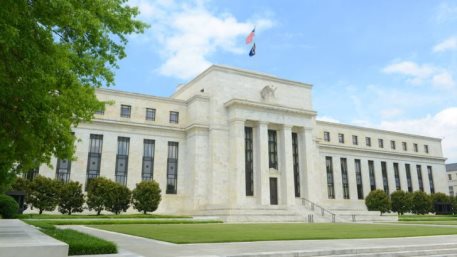
Traders, investors, and regular people alike are becoming increasingly anxious because of surging consumer prices worldwide. The fallout of the pandemic continues to represent the most significant impediment to global recovery. Yet, the efforts of central banks to foster better employment conditions are being seen as adding fuel to an already raging inflation fire.
Global prices have reached levels that have not been seen since the 2008 credit crunch, which is making markets more restless. Such concerns are epitomised by the fear of a new debt bubble burst that the prospect of hyperinflation could catalyse.
However, all of these concerns may ultimately be unwarranted as the uptick in consumer and production prices appears to be owing mostly to transitionary factors. This can explain the stoicism of the FED, ECB, BOE, and other central banks in the face of the perceived threat to the stability of the international financial system.
Jerome Powell and his colleagues from the FOMC were the first to signal the brewing disparity between global supply and demand pressures
Many have criticised the Federal Reserve for its massively accommodative policy stance, even though it has been instrumental in cushioning the impact of the pandemic so far. These criticisms are ultimately unwarranted because even though the U.S. economy is showing definite signs of stabilisation, tightening the monetary policy at the present rate would be premature and would most likely stave off future recovery.

The disappointing GDP numbers for the second quarter of 2021 are demonstrative that the stabilisation of the U.S. economy remains fragile and susceptible to external ripples in the international trade network. This is perhaps the most apparent reason why the Federal Reserve would have to preserve the current scope of its asset purchase facility until 2023.
The pace of FED's asset purchase facility coupled with the overall scope of the quantitative easing programmes is what contributed to inflation surging to 5.4 per cent in June. This is the highest level on record since August 2008 and a primary reason for concern at present.
While it is true that consumer prices in the short term are exceeding FED's 2.0 per cent target level more than two times, longer-term inflation remains subdued. The temporary acceleration of prices is owing to transitionary global factors that are not significant enough to affect FED's longer-term policy strategy.

These include persisting supply bottlenecks, which are causing the continued disparity between international supply and demand. The latter has already had an imprint on the latest earnings season in the U.S., causing some unexpected disappointments.
Even the ECB is reluctant to scale back its asset purchases despite mounting backlash in Europe
The European Central Bank has apparently learned its mistakes from more than a decade ago, as it is also reluctant to dial back its asset purchase programmes.
Christine Lagarde, Chair of the ECB, recently announced that the bank would be adopting a new strategy with regard to its inflationary goals. The ECB lifted the range of its price goals from "moderately below" 2.0 per cent to a "symmetric target" of 2.0 per cent.
Several weeks later, this decision appears to have been the right one. In light of the aforementioned disruptions to the global supply chains, many factory orders for European goods continue to be unfilled.
Factories in the Eurozone scramble to hire more workers as aggregate demand continues to grow markedly. Today's manufacturing data underpins the protracted difficulties along the supply chains, which contributed to the most significant growth in factory employment on record.
The impact of market seasonality is also a contributing factor
Finally, the uptick in consumer prices can also be explained by the quite normal impact of market seasonality for this time of the year. Spending tends to rise in the summer months as people go on their holidays.
Unlike other times, this year this effect is additionally bolstered by the fact that many people are going out of their homes for the first time after months in lockdown. This is likely causing a supercharged seesaw effect in spending, as people spend more than they would have otherwise done.
These are just two of the most prevalent reasons why rising inflation globally is still not a major impediment to growth and recovery.




















